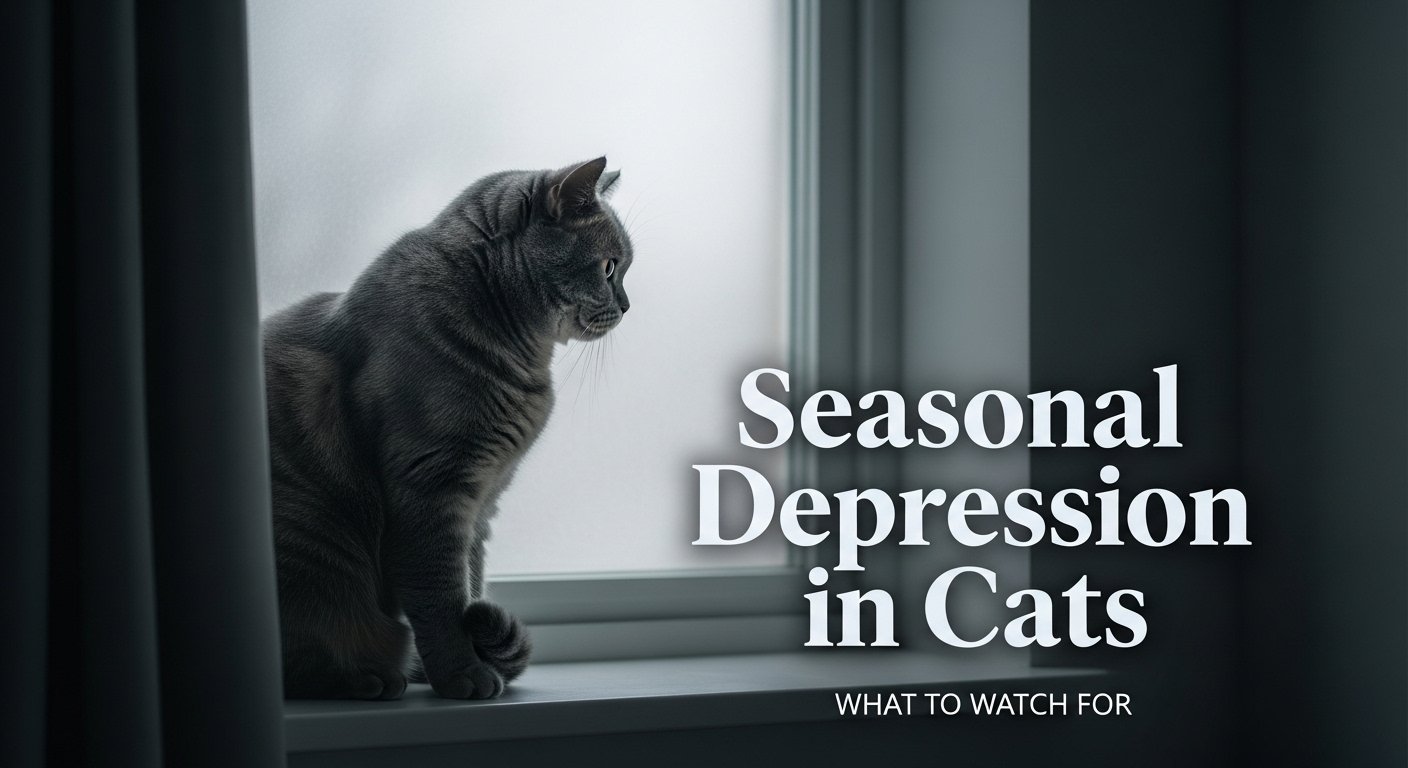
Can Cats Get Seasonal Depression?
When winter rolls in and the days get shorter, many of us feel sluggish, less motivated, or even a little down a condition often called seasonal affective disorder (SAD).
But what about our feline friends? Can cats experience seasonal depression too?
While cats don’t get “SAD” in the same way humans do, they can experience mood shifts, lethargy, and behavioral changes during seasonal changes. For U.S. cat parents, knowing the signs can make all the difference in keeping your kitty happy.
What Is Seasonal Depression in Cats?
Cats are sensitive to changes in light, temperature, and environment. When days get shorter and sunlight decreases, their natural rhythms may shift.
Signs some cats experience “winter blues”:
- Sleeping more than usual
- Seeming less playful or engaged
- Eating less (or sometimes more)
- Hiding more often

Why Seasonal Changes Affect Cats
Three main reasons:
- Reduced Sunlight → Cats rely on light for regulating body clocks. Less sunlight can alter mood and sleep cycles.
- Owner Routine Changes → In colder months, owners may go out less or change daily patterns, which impacts cats.
- Indoor Environment → Closed windows, less fresh air, and less stimulation can make cats restless or bored.
Can It Be Clinical Depression?

Cats don’t get diagnosed with “seasonal affective disorder,” but vets recognize seasonal-linked behavior changes.
Warning signs that warrant a vet visit:
- Extreme withdrawal (hiding all day).
- Significant appetite loss.
- Sudden aggression or irritability.
- Weight loss or neglecting grooming..
Ways to Help Cats Beat the Winter Blues
The good news: Cat parents can make small changes to brighten their kitty’s mood.
- Maximize Natural Light
Open blinds, set up cozy perches near sunny windows.
- Provide Artificial Light
Cat-safe lamps or sun-mimicking bulbs can help mimic longer days.

- Keep Them Active
Playtime helps fight boredom. Use wand toys, laser pointers, or puzzle feeders.
- Maintain Routine
Cats thrive on predictability. Feeding and play schedules should stay consistent.
- Offer Extra Comfort
Warm blankets, heated cat beds, or snuggle time can make a huge difference.

Other Possible Explanations
Not every winter slump is seasonal depression. Sometimes it’s:
- Age-related changes (older cats nap more).
- Medical issues (thyroid, pain, infection).
- Household stress (moving furniture, new pets, loud noises).
If changes seem extreme, a checkup is always safest.
When to See a Vet
Call your vet if your cat shows:
- Drastic appetite or weight changes.
- Hiding for most of the day.
- Refusal to groom or interact.
- Sudden aggression.
These signs could indicate health problems, not just seasonal mood shifts.
Final Thoughts
Cats may not get diagnosed with seasonal depression like humans, but they’re definitely sensitive to seasonal changes. Shorter days and less stimulation can leave them sleepy, moody, or withdrawn.
By adding more light, play, and comfort, U.S. pet parents can help their cats thrive year-round no matter the weather outside.



